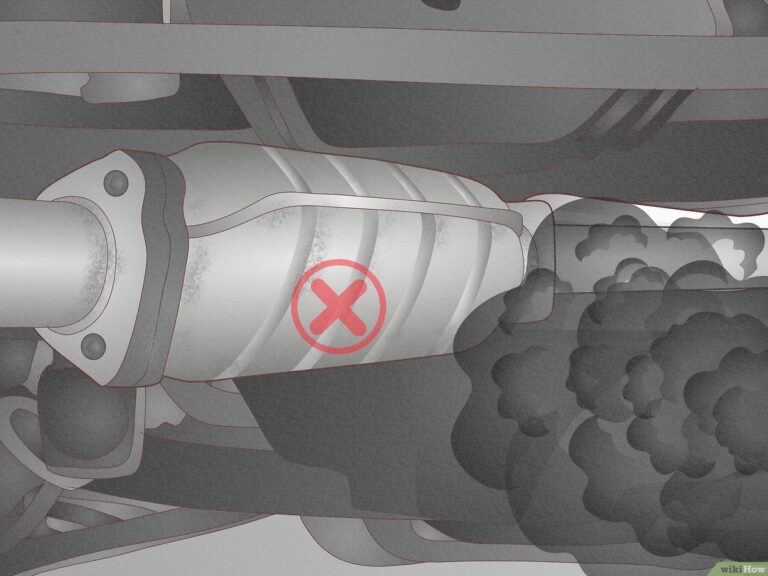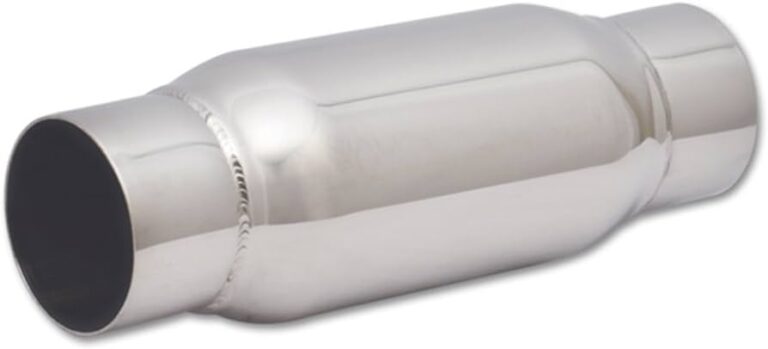Finding Exhaust Leaks : Uncover Hidden Problems
Finding exhaust leaks is crucial for maintaining the performance and efficiency of your vehicle. It helps prevent harmful emissions and reduces the risk of damage to other components.
We will explore various methods to accurately locate exhaust leaks so you can address them promptly and ensure your vehicle runs smoothly. Whether you are a DIY enthusiast or a professional mechanic, these tips and techniques will assist you in identifying and fixing exhaust leaks effectively.
By following these steps, you can save time, money, and hassle in the long run, while also protecting the environment. So let’s dive in and learn how to find exhaust leaks like a pro!
Signs Of Exhaust Leaks
Signs of Exhaust Leaks:
Symptoms of exhaust leaks in a vehicle:
- Strange noises: Unusual hissing, tapping, or popping sounds from the engine could indicate an exhaust leak. These noises might be more noticeable during acceleration or idling.
- Smell of exhaust fumes: If you detect a strong smell of exhaust inside or outside the vehicle, it may be a sign of a leak. Pay attention to any unpleasant odors while driving.
- Visual indicators: Look for soot or black marks along the exhaust system components, including the exhaust manifold, pipes, and muffler. Rust or corrosion can also be signs of a potential leak.
- Poor fuel efficiency: Exhaust leaks can disrupt the proper functioning of the engine, leading to decreased fuel efficiency. If you notice a sudden drop in your vehicle’s gas mileage, consider getting your exhaust system inspected.
Identifying Exhaust Leaks
Finding Exhaust Leaks
Identifying Exhaust Leaks
| Step-by-step guide to locating exhaust leaks |
|
Potential Complications
The potential complications of ignoring exhaust leaks can have significant consequences for both occupants and the environment. One major concern is the health risks associated with inhaling toxic fumes emitted from the leak. These fumes contain harmful chemicals such as carbon monoxide, which can lead to dizziness, nausea, and even death in severe cases.
Moreover, exhaust leaks can negatively impact the performance and efficiency of the vehicle. When there is a leak in the exhaust system, the engine has to work harder to push out the gases, resulting in reduced power and increased fuel consumption. This not only affects the overall performance of the vehicle but also leads to higher emissions and contributes to air pollution.

Credit: www.amazon.com
Frequently Asked Questions For Finding Exhaust Leaks
What Is The Easiest Way To Find An Exhaust Leak?
The easiest way to find an exhaust leak is by inspecting the exhaust system for any visible cracks or holes. You can also listen for any unusual hissing or popping sounds while the engine is running. Another method is to spray a soapy water solution on the exhaust pipe and look for bubbles, indicating a leak.
Where Do Most Exhaust Leaks Occur?
Exhaust leaks commonly occur at the connection points of the exhaust system, such as the manifold, gaskets, or joints. These leaks are usually caused by wear and tear, rust, or improper installation. Inspecting and fixing these areas can help prevent further issues and maintain the efficiency of your exhaust system.
What Can I Spray To Check For Exhaust Leaks?
To check for exhaust leaks, you can use a can of aerosol spray designed specifically for this purpose. Spray the product onto the joints and connections of your exhaust system while the engine is running. If there’s a leak, the spray will cause the exhaust to bubble and produce a hissing sound.
Is It Hard To Find An Exhaust Leak?
It can be challenging to locate an exhaust leak due to its hidden nature. Professional inspection and diagnostic tools are typically needed to accurately identify and repair exhaust issues.
Conclusion
To sum up, detecting exhaust leaks is crucial for the overall performance and safety of your vehicle. By paying attention to signs such as abnormal noises, decreased fuel efficiency, and a strong smell of exhaust, you can identify and address leaks promptly.
Regular maintenance and inspection of the exhaust system can prevent further damage and ensure a smooth driving experience. Remember, a well-maintained exhaust system means a healthier car and a happier driver.






